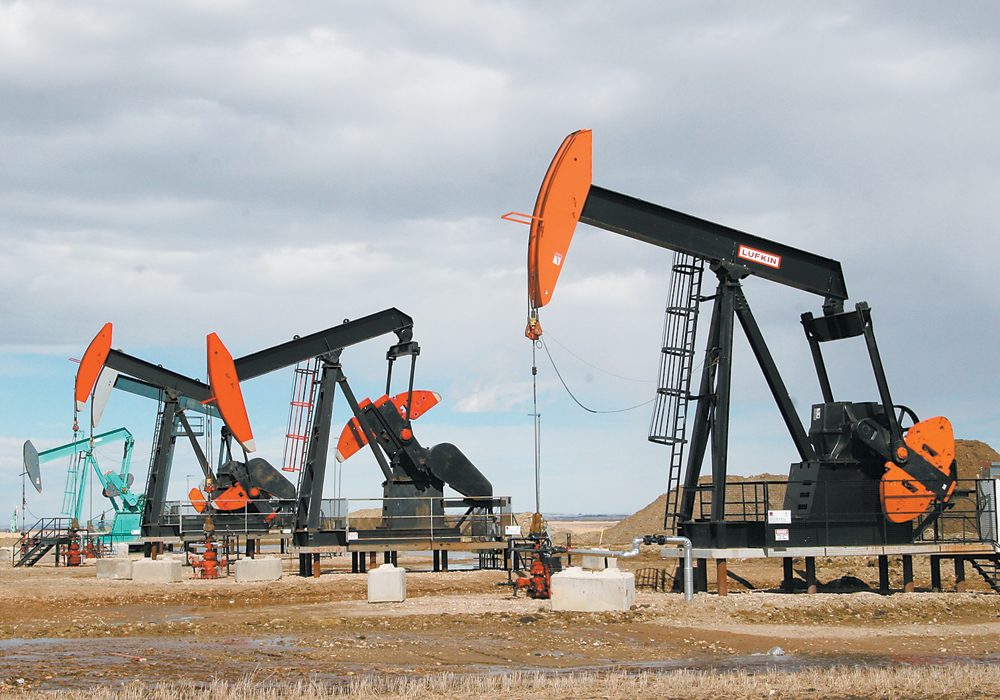Suggestion that public money could be invested in the oil and gas sector made after proposed oilsands mine falls through
Alberta Premier Jason Kenney says he is prepared to invest public money into an oil and gas project, arguing the move might be necessary to ensure a healthy energy sector.
Details on the potential plans are slim, but funds could be funneled through a public corporation or agency, Kenney told reporters Feb. 25.
“We will not be stopped. This province will not be shut down,” he said.
“We’re not leaving in the ground assets that represent $10 trillion of value in global markets. We will not be the only energy producer, of the major energy producers in the world, to choose poverty over prosperity.”
Read Also

Farming Smarter receives financial boost from Alberta government for potato research
Farming Smarter near Lethbridge got a boost to its research equipment, thanks to the Alberta government’s increase in funding for research associations.
Kenney’s push for public investment comes after Teck Frontier decided it was not moving ahead with its massive oilsands mine near Fort McMurray, Alta.
The company said in a letter that it pulled the investment because Canada doesn’t yet have a framework in place that reconciles resource development and climate change.
It said global capital markets are changing rapidly, and investors and customers are looking for jurisdictions with such framework.
The federal government had been expected to make a decision last week on whether to approve it. It no longer needs to because Teck pulled out.
Kenney, however, has blamed Teck’s move on what he says are failed federal policies that have created uncertainty for investors.
He pointed to past decisions, including the end of the Petronas LNG project, the end of the Northern Gateway and Energy East pipelines and the federal government’s purchase of the TransCanada pipeline, as signals that indicate failed government policy.
“I say to the federal government that they have partial responsibility for this,” Kenney said.
“We were willing to bend over backwards and work with them, and we proved that in the dying days of the project.”
Kenney cautioned that any public investment will be done carefully. He said funds would be deliberate and provide a path forward for jobs and the energy sector.
The province could partner with industry to get a project underway, he added, pointing to past efforts in the 1970s by the Peter Lougheed government.
“This was done until it was no longer necessary, but it might be necessary again,” Kenney said.
As an example, he said the province, through the Alberta Indigenous Opportunities Corporation, could offer backstops. The government would facilitate co-ownership with First Nations by playing an equity role.
Kenney’s position came on the same day as the provincial speech from the throne, in which the government outlined its priorities for the upcoming legislative session.
In the speech, the government said it plans to introduce legislation that will allow Albertans to recall politicians between the election cycle.
Through a referendum mechanism, it would allow voters to force municipal, provincial and elected school board officials to step down.
As well, new legislation plans to allow Albertans to put general issues to a referendum.
Other highlights in the throne speech include:
- A $6.4 billion commitment through the 2020 capital plan.
- Introduce a long-term Blueprint for Jobs and aim to restore investor confidence.
- New Alberta Advantage Immigration Program, which aims to attract entrepreneurs to the province.
- Aims to reduce wait times and improve health outcomes, as well as implement a renewed mental health strategy with $140 million in additional supports.
- Aims to end human trafficking and prevent convicted sexual offenders from changing their names.
- Toughen sanctions against impaired driving.
- Look to protect minors from the risks associated with vaping.
- Introduce legislation that affirms parents have the primary responsibility for their children’s education.
- Replace the federal parole board with a provincial parole board in charge of parole eligibility for provincial inmates.
- Act on other recommendations from the Fair Deal Panel, which is examining ways the province can have more autonomy in the country.


















